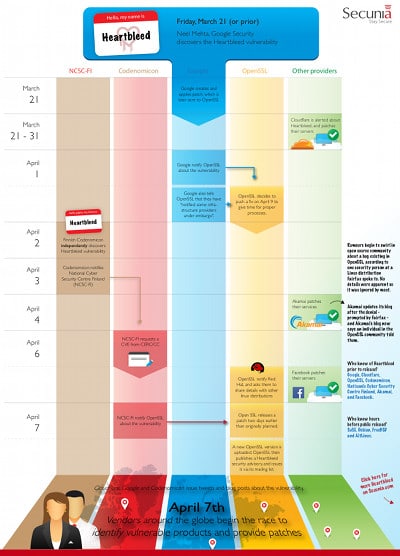Beware of Google domains bearing gifts – especially gifts from India. On Tuesday, Google’s Adam Langley took to the company’s security blog to warn about unauthorized digital certificates that have been issued by India’s National Informatics Centre (NIC) and used to vouch for “several Google domains.” Google notified the NIC, as well as India’s Controller of Certifying Authorities (or CCA) and Microsoft about the discovery and the certificates have been revoked, Langley said. As Cory Doctorow noted over at BoingBoing.net, most operating system vendors and browser makers don’t trust NIC-issued certificates as a matter of course. However, NIC holds intermediate CA (certificate authority) certificates that are trusted by India’s CCA, and CCA-trusted certificates are included in Microsoft’s Root Store, meaning applications running on Windows as well as Microsoft’s Internet Explorer web browser would have trusted the bogus NIC certificates. Google said that Chrome users on Windows would not have been victims of the […]
Spoofing
Infographic: A Heartbleed Disclosure Timeline (Secunia)
The dangerous security hole in OpenSSL known as “Heartbleed” has (mostly) faded from the headlines, but that doesn’t mean it isn’t still dangerous. As this blog has noted, the Heartbleed vulnerability was patched quickly on major platforms like Apache and nginx and by high profile service providers like Google and Facebook. But it still has a long tail of web applications that aren’t high risk (i.e. directly reachable via the Internet) and embedded devices that use OpenSSL or its various components. As the folks over at Acunetix note in a blog post today, hundreds of other services, application software and operating systems make use of OpenSSL for purposes that might be entirely unrelated to delivering pages over HTTPS. This includes all the email servers (using SMTP, POP and IMAP protocols), FTP servers, chat servers (XMPP protocol), virtual private networks (SSL VPNs), and network appliances that use OpenSSL or its components. The number of systems vulnerable to […]
For Smart TVs, Malware May Hide In Broadcast Content
Researchers at Columbia University have published research showing how new technology that combines broadband and broadcast content could enable a wide range of traditional and novel cyber attacks on smart televisions and other devices: forcing them to interact with malicious web pages, harvesting credentials or carrying out denial of service attacks. The paper, published in May, explores potential attacks on combined broadcast-broadband devices that use an industry specification called Hybrid Broadcast-Broadband Television (HbbTV). According to the researchers, Yossef Oren and Angelos D. Keromytis, the HbbTV specification combines broadband technologies like HTML and broadcast features in an insecure manner. The vulnerabilities affect a wide range of smart entertainment devices, including smart televisions, in Europe and the United States. “This enables a large-scale exploitation technique with a localized geographical footprint based on radio frequency (RF) injection, which requires a minimal budget and infrastructure and is remarkably difficult to detect,” the researchers write. “The technical complexity and […]
FireEye Report: Iranian Hacker Group Becoming More Sophisticated
A report from the security firm FireEye claims that hacking crews based in Iran have become more sophisticated in recent years. They are now linked to malicious software campaigns targeting western corporations and domestic actors who attempt to circumvent Internet filters put in place by the ruling regime. The report, dubbed “Operation Saffron Rose,”(PDF) was released on Tuesday. In a blog post accompanying the research, FireEye researchers say that it has identified a group of hackers it is calling the “Ajax Security Team” that appears to have emerged out of Iranian hacker forums such as Ashiyane and Shabgard. Once limited to website defacements, the Ajax team has graduated to malware-based espionage and other techniques associated with “advanced persistent threat” (APT) style actors, FireEye said. The researchers claim that the group has been observed using social engineering techniques to implant custom malware on victims’ computers. The group’s objectives seem to align with those […]
Update – Virtual Vandalism: Firm Warns Of Connected Home Security Holes
[This story was updated to include response from Belkin describing its response to the vulnerabilities identified by IOActive, including firmware updates. – PFR Feb 19, 2014] A researcher with the respected security firm IOActive says that he has found a number of serious security holes in home automation products from the firm Belkin that could allow remote attackers to use Belkin’s WeMo devices to virtually vandalize connected homes or as a stepping stone to other computers connected on a home network. In a statement released on Tuesday, IOActive researcher Mike Davis said that his research into Belkin’s WeMo technology found the “devices expose users to several potentially costly threats, from home fires with possible tragic consequences down to the simple waste of electricity.” IOActive provided information on Davis’s research to the US Computer Emergency Readiness Team (CERT), which issued an advisory on the WeMo issues on Tuesday. Belkin did not […]





